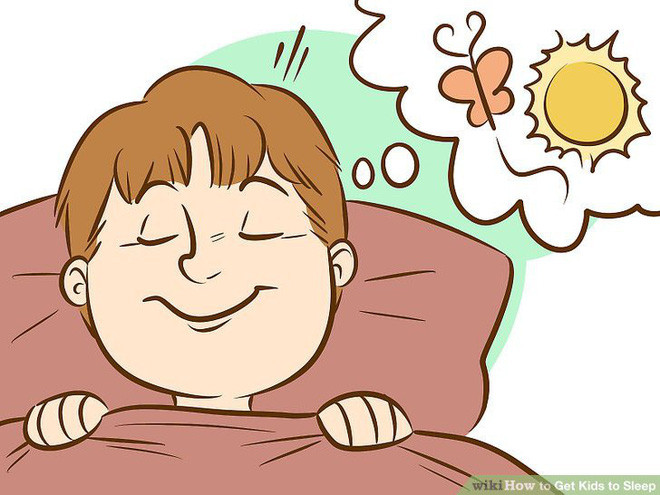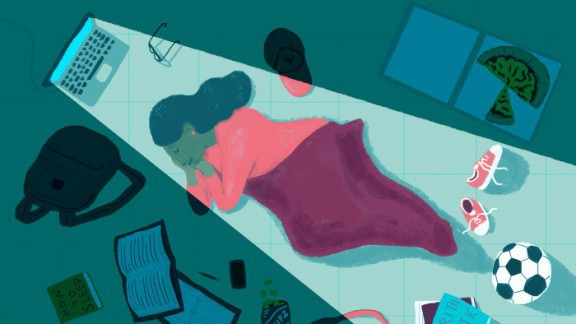5 reasons why you sleep more than 10 hours a day and still yawn
For some people, sleep is never enough. After long sleep, they still wake up lethargically while others are awake. Why is that?
It's okay to sleep a little on the weekends (though your mother doesn't think so). But if several nights you slept for 10 hours and noon still yawned and yawned at noon, it was time to understand the real cause.
1. Sleeping a lot

Sleeping a lot without errors, genetic errors and hormones.
A study shows that genes can cause you to sleep more than 8 hours a day, ie the average number of hours of adult sleep.
Scientist Ronald Chervin at the University of Michigan said in this case: "Changing your sleeping patterns so much is quite difficult. But if you regularly go to bed and wake up at the right time, you will be easy." easier in adjusting your sleep ".
In addition, adolescence is also thought to need more sleep and must fight harder to resist the "temptation" of the soft bed.
At this age the body will have many changes, including daily biological rhythms and that leads to longer sleep. Of course, it's also part of habit.
Overall, in this case, we can say that there are no errors, errors in genes and hormones.
2. Sleep to make up for the awake nights

Sleep compensation can not help you feel more refreshed.
If you stay awake for 1 to 2 nights then your body will want to sleep more as soon as the opportunity arises. Fortunately for you, this is a bad habit rather than a disease symptom.
However, being awake - sleeping is often contrary to our natural instincts.
So sleep compensation can not help you feel more refreshed. A good sleep is similar to the time that has passed - passing is not regain.
3. Psychological instability can be the culprit
There are 2 cases of sleep when you have a psychological problem. According to a report from Bristol University (UK) 75% of depressed people suffer from insomnia.
But in some cases they feel sluggish and want to sleep more, each sleep lasts up to 10-11 hours. This case occurs in 40% of young people and 10% in older people. Women will encounter this more than men.
When depression leads to poor sleep quality, do not try to delay it but go to your psychologist immediately for advice.
4. Sleeping a lot can be a sign of "sleep disorder"

People with this syndrome can sleep for 15-20 hours.
Sleep disorder is a disease, and depression is not the cause but only a factor that causes the disease to develop or exacerbate.
This disease occurs in many different ages. Stanford University scientists have studied its real causes but have not been able to draw conclusions.
Very sleepy disorders include many different manifestations. That may be insomnia. Or vice versa, there is another syndrome called "sleeping beauty".
People with this syndrome can sleep for 15-20 hours and only get out of bed to eat or use the toilet.
Note that this is repeated weekly, not a sudden, spontaneous behavior. These features of "sleeping beauty " are a bit different from sleeping too much from depression, depression.
The probability of a sleep disorder is only 1 in a million. But if you suspect you are experiencing this, it is best to consult a doctor immediately.
5. Sleep more after injury

Getting a lot of sleep after an injury helps restore nerve function.
Brain injuries can cause long-term sleep. This is a mechanism of the brain, because more sleep helps restore nerve function.
However, after the injury has a sleep problem, this is a sign that cannot be underestimated.
In short:
If after a long sleep and you feel more fresh, not ready to start a new day is not very worrying.
Conversely, if you often sleep more than 10 hours a day and still feel tired, there is no other way to see a doctor for a more thorough diagnosis.
- Too much yawn to sleep is not a simple thing
- Yawn and sympathy
- Science finds the exact number of hours of sleep every night making you the happiest
- Survey of sleep stories of Westerners and Eastern people
- Lack of sleep makes teenagers vulnerable to viral infections
- Every night, 7 hours of sleep is ideal
- Why do we need sleep?
- Sleeping less than 9 hours / day, children find it difficult to absorb lessons
- People only need 4 hours of sleep a day due to genetic mutations
- What time to sleep is good for your health
- Why sleep up and still tired?
- Why is yawning contagious?
 Green tea cleans teeth better than mouthwash?
Green tea cleans teeth better than mouthwash? Death kiss: This is why you should not let anyone kiss your baby's lips
Death kiss: This is why you should not let anyone kiss your baby's lips What is salmonellosis?
What is salmonellosis? Caution should be exercised when using aloe vera through eating and drinking
Caution should be exercised when using aloe vera through eating and drinking